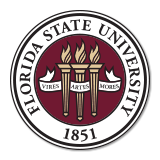The departmental deadline for applying for financial aid is March 1st for Fall semester. For admission only, please follow the university deadlines posted at admissions.fsu.edu and/or admissions.famu.edu.
Candidates for the Master of Science and the Doctor of Philosophy programs in Chemical & Biomedical Engineering at the FAMU-FSU College of Engineering must fulfill the general requirements established by either The Florida A&M University or The Florida State University and the specific requirements set by the Department of Chemical & Biomedical Engineering. If an applicant satisfies the specified University's requirements but fails to meet the departmental criteria, admission will be denied. The decision of the departmental graduate committee is final in all matters concerning admission.
Florida A&M University and Florida State University Minimum Graduate Admission Requirements:
- Online (electronic) application to either Florida A&M University or Florida State University including necessary personal statement, resume, Florida residency documentation (if applicable) and any required applications fees.
- An official, certified copy of all transcript(s), diploma(s), and/or degree certificate(s) from each college or university attended demonstrating a bachelor's degree and at least a 3.0 grade point average on a 4.0 grading scale as an upper division undergraduate student (last 60 hours), OR at least a 3.0 for a master's degree from an accredited institution. All academic records that are not in English must be accompanied by certified English translations and conversion to the standard 4.0 GPA scale;
- Graduate Record Examination (GRE) scores must be sent directly to the applicant's university of choice by the Education Testing Service (ETS); and
- For international students whose native language is not English and without a degree from an accredited US institution, the following minimum TOEFL scores are required: Internet-based (IBTOEFL) = 80 or paper-based (TOEFL) = 550.
Department of Chemical & Biomedical Engineering Minimum Admission Requirements:
Master of Science in Chemical Engineering
Admission Requirements
- A baccalaureate degree in chemical engineering or an allied field from an accredited college or university;
- Fulfillment of the requirements for the baccalaureate degree or its equivalent. Students may be required to satisfy deficiencies by taking undergraduate courses or can enroll in a transitional summer program if they do not have a degree from an accredited chemical engineering degree program;
- An undergraduate or graduate GPA of 3.0 (on a 4.0 scale) or higher;
- A minimum revised GRE percentile of at least 48% on the verbal portion and 75% on the quantitative portion of the test. It is noted that the GRE percentiles of funded graduate students on assistantship are typically higher than these minima;
- Three letters of recommendation from persons familiar with the student's work and background;
- A personal statement of professional goals; and
- International students: For students whose native language is not English and who did not graduate from an accredited US institution with either a BS or MS degree, minimum scores on the TOEFL are 550 (paper-based), 213 (computer-based) or 80 (Internet-based).
Note:
- All students must present GRE scores prior to admission.
- Students who do not possess a bachelor's degree in chemical engineering may be required to complete a department-designated sequence of undergraduate courses with a grade of "B" or higher in each course or may be eligible for an accelerated transitional program taken during the summer prior to full enrollment. Up to six (6) semester hours of 4000-level coursework approved by the Department may be counted as graduate electives. Transfer credit from another institution is limited to six (6) semester hours with departmental approval. Typical undergraduate course sequences (in preparation for graduate courses) include the following courses:
- ECH 3023 - Mass and Energy Balances I (3)
- ECH 3024 - Mass and Energy Balances II (3)
- ECH 3101 - Chemical Engineering Thermodynamics (3)
- ECH 3301 - Chemical Engineering Process Analysis (3)
- ECH 3266 - Introductory Transport Phenomena (3)
- ECH 3418 - Separations Processes (3)
- ECH 3854 - Chemical Engineering Computations (3)
- ECH 4267 - Advanced Transport Phenomena (3)
- ECH 4504 - Kinetics and Reactor Design (3)
Additional courses in subjects including mathematics, biology, chemistry, physics and general engineering also may be required. Acceptance of equivalent courses is evaluated on a case-by-case basis following petition to Graduate committee. Departmental financial support is typically not available for graduate students taking undergraduate courses.
Doctor of Philosophy in Chemical Engineering
Admission Requirements
- Fulfillment of the Department's admission and core course requirements for the chemical engineering master's degree or its substantive equivalent (see above);
- Maintenance of a high scholastic record at the previous college or university attended.
Students who meet the admission requirements are encouraged to apply for the PhD program. Students who maintain a 3.0 graduate GPA and demonstrate proficiency in conducting research in chemical engineering by passing the departmental PhD qualifying examination (see PhD Qualifying Examination Requirements below for more details) are admitted to PhD candidacy. Students who fulfill these requirements may, upon approval of the graduate committee and major supervisor, proceed directly toward the PhD without first obtaining a master's degree. Students with a thesis-type master's degree in chemical engineering from the FAMU-FSU College of Engineering may, with approval of the graduate committee and major professor, take nine (9) additional approved semester hours beyond the master's requirements to satisfy the 33-hour course requirement for the PhD. All other requirements must be fulfilled as stated below. Students with master's degrees from other institutions will be given a specific course plan by the departmental graduate committee.
Master of Science in Biomedical Engineering
Admission Requirements
- A baccalaureate degree in biomedical engineering, chemical engineering or an allied field from an accredited college or university;
- Fulfillment of the requirements for the baccalaureate degree or its equivalent. Students may be required to satisfy deficiencies by taking undergraduate courses or can enroll in a transitional summer program if they do not have a degree from an accredited biomedical or chemical engineering degree program;
- An undergraduate or graduate GPA of 3.0 (on a 4.0 scale) or higher;
- A minimum revised GRE percentile of at least 48% on the verbal portion and 75% on the quantitative portion of the test. It is noted that the GRE percentiles of funded graduate students on assistantship are typically higher than these minima;
- Three letters of recommendation from persons familiar with the student's work and background;
- A personal statement of professional goals; and
- International students: For students whose native language is not English and who did not graduate from an accredited US institution with either a BS or MS degree, minimum scores on the TOEFL are 550 (paper-based), 213 (computer-based) or 80 (Internet-based).
Note:
- All students must present GRE scores prior to admission.
- • Students who do not possess a bachelor's degree in biomedical or chemical engineering may be required to complete a department-designated sequence of undergraduate courses with a grade of "B" or higher in each course or may be eligible for an accelerated transitional program taken during the summer prior to full enrollment. Up to six (6) semester hours of 4000-level coursework approved by the Department may be counted as graduate electives. Transfer credit from another institution is limited to six (6) semester hours with departmental approval. Typical undergraduate course sequences (in preparation for graduate courses) include the following courses:
- ECH 3023 - Mass and Energy Balances I (3)
- ECH 3024 - Mass and Energy Balances II (3)
- ECH 3101 - Chemical Engineering Thermodynamics (3)
- ECH 3301 - Chemical Engineering Process Analysis (3)
- ECH 3266 - Introductory Transport Phenomena (3)
- ECH 3418 - Separations Processes (3)
- ECH 3854 - Chemical Engineering Computations (3)
- ECH 4267 - Advanced Transport Phenomena (3)
- ECH 4504 - Kinetics and Reactor Design (3)
- BME 4403c - Quantitative Anatomy and Systems Physiology I (3)
- BME 4404c - Quantitative Anatomy and Systems Physiology II (3)
Additional courses in subjects including mathematics, biology, chemistry, physics and general engineering also may be required. Acceptance of equivalent courses is evaluated on a case-by-case basis following petition to Graduate committee. Departmental financial support is typically not available for graduate students taking undergraduate courses.
Doctor of Philosophy in Biomedical Engineering
Admission Requirements
- Fulfillment of the Department's admission and core course requirements for the BME master's degree or its substantive equivalent (see above);
- Maintenance of a high scholastic record at the previous college or university attended.
Students who meet the admission requirements are encouraged to apply for the PhD program. Students who maintain a 3.0 graduate GPA and demonstrate proficiency in conducting research in biomedical or chemical engineering by passing the departmental PhD qualifying examination (see PhD Qualifying Examination Requirements below for more details) are admitted to PhD candidacy. Students who fulfill these requirements may, upon approval of the graduate committee and major supervisor, proceed directly toward the PhD without first obtaining a master's degree. Students with a thesis-type master's degree in biomedical or chemical engineering from the FAMU-FSU College of Engineering may, with approval of the graduate committee and major professor, take nine (9) additional approved semester hours beyond the master's requirements to satisfy the 33-hour course requirement for the PhD. All other requirements must be fulfilled as stated below. Students with master's degrees from other institutions will be given a specific course plan by the departmental graduate committee.

